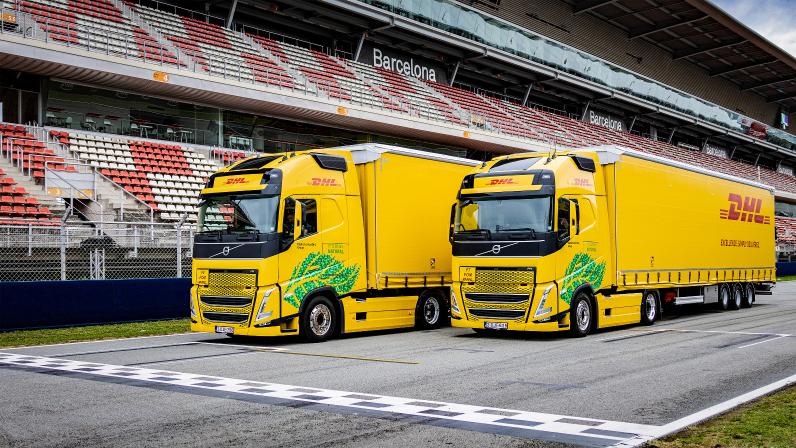Formula 1 today announced that DHL’s new fleet of trucks running on biofuel reduced carbon emissions by an average of 83% [1], compared to fuel-driven trucks, across the European leg of the 2023 FIA Formula One World Championship.
Across the nine European rounds, the new 18 trucks were powered by HVO100 drop-in fuel (hydrotreated vegetable oil)[2] and travelled over 10,600 km, transporting an average of 300 tonnes of freight per race. These trucks were vital in delivering the events in Europe, which concluded with the FORMULA 1 PIRELLI GRAN PREMIO D’ITALIA 2023 in Monza at the start of September.
This project demonstrates how the partnership between Formula 1 and DHL partnership is using the latest technologies and new ways of working to ensure the delivery of events in a more sustainable manner. The use of biofuel will continue into 2024 and beyond, with the data from this summer providing invaluable insight as Formula 1 and DHL explore further opportunities and sustainable innovations as the sport moves towards being Net Zero by 2030.
The biofuel-driven trucks maintain the same level of performance in terms of load capacity and travel distance as their diesel counterparts and all trucks in the DHL fleet are equipped with GPS to monitor fuel consumption and optimise more efficient routes.
In 2026, alongside the introduction of the next-generation hybrid engine, Formula 1 cars will be powered by advanced sustainable fuel, which due to the development from the sport’s energy suppliers could have a hugely positive impact on the wider automotive and transport industry with drop-in capabilities. This year’s F2 and F3 Championships have been powered by 55% sustainable fuel in partnership with Aramco, with the latter concluding at the Italian Grand Prix.
Ellen Jones, Head of Environment, Social and Governance at Formula 1 said:
“It is great to see how our logistics operations can transform to achieve our Net Zero by 2030 goal. Reductions such as 83% with the use of the biofuel-powered trucks provide a fantastic platform to build upon, which we will analyse and then continue to deliver in our 2024 season, ensuring that these savings move from a single initiative to business-as-usual carbon reductions. Transport and logistics make up a significant portion of our carbon footprint in our sport, and it is crucial to have likeminded partners like DHL that are committed to working with us to drive these down and help us realise our Net Zero target.”
Paul Fowler, Head of DHL Motorsports Logistics said:
“The introduction of 18 new biofuel-powered trucks this season marks a significant stride towards a more sustainable future for both Formula 1 and DHL. Achieving an 83% average reduction is a remarkable accomplishment, and we take great pride in it. As the Official Logistics Partner for Formula 1 and a leader in green logistics, we are pleased to contribute to Formula 1’s sustainability goals.”
[1] HVO100 is a second-generation biofuel, meeting the standard EN15940 for paraffin fuels.
[2] A voluntary certification organization approved by the European Union calculated the 83% figure through a certification of carbon emissions using a methodology aligned with the European RED II Directive (2018/2001).

